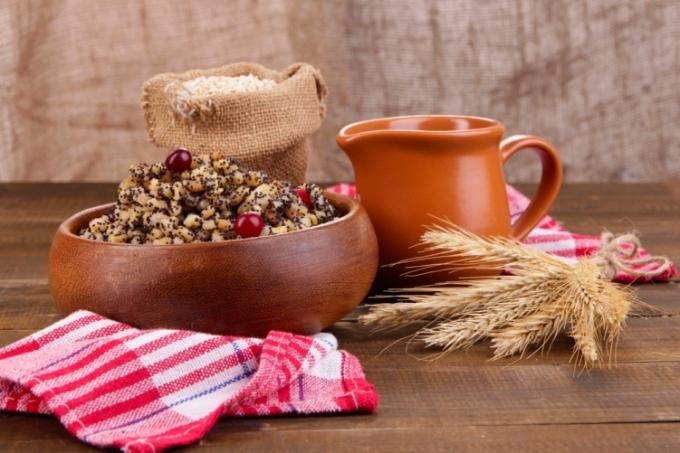The Old New Year is knocking on us. This holiday has its own rules and rituals. What absolutely can not be done on January 13 and 14? What is the difference between giving and sowing? Read in our material
Christmas time - holidays, which our ancestors were looking forward to with special impatience, continue. Indeed, for them, this meant that not only the table would be bursting with delicious and satisfying food, but the holiday would also look into every home. Namely: carols, schedrivkas and sowing wishes will sound.
But if for the modern inhabitants of Ukraine the essence of carols is still clear (the glorification of the birth of God's Son), then many have questions about generosity and sowing. Not everyone knows how these two rituals differ.
How is generosity different from sowing

On the night of January 13-14, the Old New Year is usually celebrated (a tradition that arose as a result of the 1918 reform and the country's transition to the Gregorian calendar). But for our ancestors, these days were special for another reason. The fact is that on January 13, the Orthodox Church celebrates the day of St. Melania (people often call her Melanka). And January 14 is the day of memory of St. Basil the Great. And these days it was customary not only to congratulate everyone around on holidays, but also to do it in song and poetic form.
On January 13, they usually sang schedrivki. Only girls and girls could do this. After sunset, girls' companies go from house to house and wish good and happiness to families, well-being, and praise the owners of the house. For this, the young ladies receive gifts and treats.
And already on January 14, the guys are sowing. This is a tradition that is not associated with the well-being of the clan or family, but with agriculture, since Vasily The great one is the patron of the earth and therefore, to appease him, the house is symbolically “sown” grain. For this, by the way, you can take not only wheat, but also rice and millet. By the way, the guys started sowing at midnight or came to the house at dawn. And this was done so that the first woman would not enter the house on January 14, God forbid. Only the appearance of a guy that day could guarantee a good harvest and good luck in business. A woman is to trouble and crop failure.
What not to do on the Old New Year

You can not sweep the grain, which "sowed" the house. Let it lie down for at least a day.
Also, you can not close the door and not let the generous and sowing into the house. Otherwise, the doors will be closed for the well-being of this family.
You can not work or swear. Just have fun and be happy. Otherwise, you will spend the whole year in squabbles and showdowns.
You can't eat fast food. The table should be bursting with delicious food. And to start the evening meal on January 13, you must certainly start with a rich kutya seasoned with poppy seeds, honey and cream or butter. If you do not adhere to this tradition, then there will be no money in the house.
Money these days is better not to count. That is, it is impossible to prepare banknotes for sowers in advance, and in no case should you count the remaining money or lend it. It was believed that such a warning would help increase financial income in the new year.
Garbage also cannot be taken out of the house on January 14, otherwise you will take out health from the house.
You will also be interested in reading:
7 main dishes for the Generous Evening: what should be on the table on January 13

